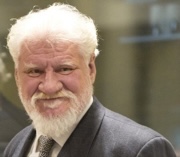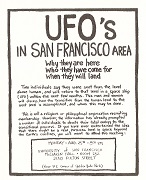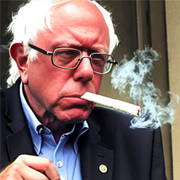(Thread IKs:
loquacius)
|
Willa Rogers posted:I mean, he's correct inasmuch as pedos were held to a different standard--none at all!--back when he & I were growing up. i say again: jesus loving christ
|
|
|
|

|
| # ? Jun 7, 2024 22:04 |
 special warning for c-spam. succ zone take heed! special warning for c-spam. succ zone take heed!  
|
|
|
|
|
I ain't donating until there's nonuple donation matching!
|
|
|
|
|
Shageletic posted:Did they ever settle on a justification other than CHINA BAD No and why would they bother looking for one
|
|
|
|
if they're willing to quintuple donations, then they can afford to spend 20% more and cut everybody else out of the equation altogether I mean, it's not like an unexpected 20% increase in the cost of living is a backbreaker right?
|
|
|
|
There is no phrase that better encapsulates the uselessness of the dem party than “good trouble”.
|
|
|
|
Liz Cheney is one of the last legal abortions in the United States.
|
|
|
|
|
hold on... *rips off trench coat* why, this middle class is just three part time jobs standing on each others shoulders!
|
|
|
|
Excelzior posted:Hi, trmup expert here! this is not funny, tumrp only does this when he's in extreme distress. shut the gently caress up
|
|
|
|
tristeham posted:shut the gently caress up
|
|
|
|
Nichael posted:if i was president, i simply wouldn't do genocide grow up
|
|
|
|
Clip-On Fedora posted:Ahh, I see now. They were making bad trouble instead of good trouble, and that was their crime. It all makes sense now! Good trouble means VOTE!
|
|
|
|
Sydin posted:Aren't we currently in the process of selling our steel spine to Japan? US Steel, made from global components
|
|
|
|
democrats are good trouble republicans are bad trouble simple as
|
|
|
|
RealityWarCriminal posted:steel has a low strength to weight ratio but go off so do goons
|
|
|
|
Yeah, but goons aren't lying about the state of the country. *looks at D&D* Oh
|
|
|
|
F_Shit_Fitzgerald posted:Appropriately, it looks like a villains lair. Not even a good villain. It's like the base of a Brosnan era bond villain. You just know the final fight will feature some very unconvincing CGI.
|
|
|
|
F_Shit_Fitzgerald posted:The ruling class must really be getting nervous about the pro-Palestine protesting now, given that they're suspending students for having consciences. Any unsupervised gatherings will always be considered dangerous to the status quo, because it's people expressing political subjectivity unmediated by the molasses of bureaucratic electoralism.
|
|
|
|
|
|
|
Vim Fuego posted:grow up i want a pony
|
|
|
|
|
Nichael posted:i want a pony deeply unserious
|
|
|
|
Did the NYT do a series on undocumented minors being trafficked & hired to violate underaged workplace laws so as to give Biden better optics than kiddy cages or did I dream it?
|
|
|
|
I love the videos where there's all these people just awkwardly standing around while he rambles edit: The headline actually understates how bad the clip is, because the cannibals part is preceded by him semi-coherently rambling
|
|
|
|
Nichael posted:Who can forget that famous quote from President Barack Hussein Obamna? MY NAME IS OBAMANDIAS, KING OF KINGS: LOOK ON MY WORKS, YE MIGHTY, AND DESPAIR!
|
|
|
Programmer Humor posted:deeply unserious deeply cute: 
|
|
|
|
|
I wonder what people working at the Biden Foundation thought they accomplished when they tweeted this: https://x.com/bidenfoundation/status/1121446608040755200
|
|
|
|
|
Norm did a great job explaining why Obama is a black hole of narcissism, to a pretty bewildering degree, but it's long form (with like 30 footnotes). How would you present the idea to a normal person?
|
|
|
|
DJJIB-DJDCT posted:Norm did a great job explaining why Obama is a black hole of narcissism, to a pretty bewildering degree, but it's long form (with like 30 footnotes). How would you present the idea to a normal person? A link is how I'm asking for it to be presented to me. 
|
|
|
|
I HATE torture apologist, Mark Thiessen. But today... Today in the Washington Post he delivered a long column pointing out that the money Congress doles out for Ukraine or Israel, more than 80% of it stays in the United States. For defense contractors. Our military takes our existing and aging inventory, sends it to Ukraine and Israel, and then uses the money to replenish our inventories with newer and better equipment! A Win-Win! And then Thiessen does one more thing. He tracks where those factories producing that newer and updated equipment are located, calculates the jobs and state and local revenue generated there, back to their Congressional Reps. - the ones who voted "No!" on providing those funds. Example: "Workers in Rep. Jim Jordan’s (R) Lima, Ohio, congressional district are churning out Abrams tanks and Stryker combat vehicles for Ukraine thanks to the military aid he has opposed." The majority of those districts living fat off the federal teat? Republican.
|
|
|
|
[quote="DJJIB-DJDCT" post="539026120"] In 1996, Reed wrote about him in The Village Voice: “In Chicago, for instance, we’ve gotten a foretaste of the new breed of foundation-hatched black communitarian voices; one of them, a smooth Harvard lawyer with impeccable do-good credentials and vacuous-to-repressive neoliberal politics, has won a state senate seat on a base mainly in the liberal foundation and development worlds. His fundamentally bootstrap line was softened by a patina of the rhetoric of authentic community, talk about meeting in kitchens, small-scale solutions to social problems, and the predictable elevation of process over program — the point where identity politics converges with old-fashioned middle-class reform in favoring form over substance. I suspect that his ilk is the wave of the future in U.S. black politics, as in Haiti and wherever else the International Monetary Fund has sway. So far the black activist response hasn’t been up to the challenge. We have to do better.”
|
|
|
|
Lin Manuel-Turtle posted:[HAMILTON] In this scene, Eliza repeatedly says "I do!" to convince Hamilton that the wedding is over so he can finally shut up and stop rapping Shageletic posted:I'm of the mind that "Genocide Joe" is just a convenient way to peel away voters. IMO it would be good if the person who initially wrote this post mistakenly put expired meats in their sandwich, resulting in several hours of abdominal pain
|
|
|
|
The Oldest Man posted:that's not brutalism Without looking it up I will assume Obama hired the same architecture agency that designed The Line in Saudi Arabia.
|
|
|
|
Willa Rogers posted:obama's obelisk has started going up in chicago. If I was suddenly granted the powers of Goku, I would use Instant Transmission and then kamehameha this ugly structure Some Guy TT posted:so he...didnt really need to do anything because americas backbone was already indestructible? No...can't you read? Steel isn't indestructible. Biden is referring to the fact that, even though the people of Pittsburgh are strong, they still need the painful procedure infusing their metaphorical spine with adamantium. Ytlaya has issued a correction as of 21:52 on Apr 18, 2024 |
|
|
|
The Obamarcology
|
|
|
|
Vim Fuego posted:Assuming they havent already I think they should make bernie's corpse into a chuck-e-cheese style animatronic so he can keep supporting democrats forever get in the springlock, bernie
|
|
|
|
post hole digger posted:The Obamarcology
|
|
|
|
Shageletic posted:In 1996, Reed wrote about him in The Village Voice: Dang it, you beat me! Please have this Adolph Reed article from 2014 instead: https://harpers.org/archive/2014/03/nothing-left-2/ For nearly all the twentieth century there was a dynamic left in the United States grounded in the belief that unrestrained capitalism generated unacceptable social costs. That left crested in influence between 1935 and 1945, when it anchored a coalition centered in the labor movement, most significantly within the Congress of Industrial Organizations (CIO). It was a prominent voice in the Democratic Party of the era, and at the federal level its high point may have come in 1944, when FDR propounded what he called “a second Bill of Rights.” Among these rights, Roosevelt proclaimed, were the right to a “useful and remunerative job,” “adequate medical care,” and “adequate protection from the economic fears of old age, sickness, accident, and unemployment.” The labor-left alliance remained a meaningful presence in American politics through the 1960s. What have become known as the social movements of the Sixties — civil rights activism, protests against the Vietnam War, and a renewed women’s movement — were vitally linked to that egalitarian left. Those movements drew institutional resources, including organizing talents and committed activists, from that older left and built on both the legislative and the ideological victories it had won. But during the 1980s and early 1990s, fears of a relentless Republican juggernaut pressured those left of center to take a defensive stance, focusing on the immediate goal of electing Democrats to stem or slow the rightward tide. At the same time, business interests, in concert with the Republican right and supported by an emerging wing of neoliberal Democrats, set out to roll back as many as possible of the social protections and regulations the left had won. As this defensiveness overtook leftist interest groups, institutions, and opinion leaders, it increasingly came to define left-wing journalistic commentary and criticism. New editorial voices — for example, The American Prospect — emerged to articulate the views of an intellectual left that defined itself as liberal rather than radical. To be sure, this shift was not absolute. Such publications as New Labor Forum, New Politics, Science & Society, Monthly Review, and others maintained an oppositional stance, and the Great Recession has encouraged new outlets such as Jacobin and Endnotes. But the American left moved increasingly toward the middle. ... The sources of this narrowing of social vision are complex. But its most conspicuous expression is subordination to the agenda of a Democratic Party whose center has moved steadily rightward since Ronald Reagan’s presidency. Although it is typically defended in a language of political practicality and sophistication, this shift requires, as the historian Russell Jacoby notes, giving up “a belief that the future could fundamentally surpass the present,” which traditionally has been an essential foundation of leftist thought and practice. “Instead of championing a radical idea of a new society,” Jacoby observes in The End of Utopia, “the left ineluctably retreats to smaller ideas, seeking to expand the options within the existing society.” ... For liberals, there is only one option in an election year, and that is to elect, at whatever cost, whichever Democrat is running. This modus operandi has tethered what remains of the left to a Democratic Party that has long since renounced its commitment to any sort of redistributive vision and imposes a willed amnesia on political debate. True, the last Democrat was really unsatisfying, but this one is better; true, the last Republican didn’t bring destruction on the universe, but this one certainly will. And, of course, each of the “pivotal” Supreme Court justices is four years older than he or she was the last time. Why does this tailing behind an increasingly right-of-center Democratic Party persist in the absence of any apparent payoff? There has nearly always been a qualifying excuse: Republicans control the White House; they control Congress; they’re strong enough to block progressive initiatives even if they don’t control either the executive or the legislative branch. Thus have the faithful been able to take comfort in the circular self-evidence of their conviction. Each undesirable act by a Republican administration is eo ipso evidence that if the Democratic candidate had won, things would have been much better. When Democrats have been in office, the imagined omnipresent threat from the Republican bugbear remains a fatal constraint on action and a pretext for suppressing criticism from the left. ... The stale proclamations of urgency are piled on top of the standard jeremiads about the Supreme Court and Roe v. Wade. ... Taking into account the left’s disappearance into Democratic neoliberalism helps explain how and why so many self-proclaimed leftists or progressives — individuals, institutions, organizations, and erstwhile avatars of leftist opinion such as The Nation — came to be swept up in the extravagant rhetoric and expectations that have surrounded the campaign, election, and presidency of Barack Obama. Obama and his campaign did not dupe or simply co-opt unsuspecting radicals. On the contrary, Obama has been clear all along that he is not a leftist. Throughout his career he has studiously distanced himself from radical politics. In his books and speeches he has frequently drawn on stereotypical images of leftist dogmatism or folly. When not engaging in rhetorically pretentious, jingoist oratory about the superiority of American political and economic institutions, he has often chided the left in gratuitous asides that seem intended mainly to reassure conservative sensibilities of his judiciousness — rather as Booker T. Washington used black chicken-stealing stereotypes to establish his bona fides with segregationist audiences. This inclination to toss off casual references to the left’s “excesses” or socialism’s “failure” has been a defining element of Brand Obama and suggests that he is a new kind of pragmatic progressive who is likely to bridge — or rise above — left and right and appeal across ideological divisions. Assertions that Obama possesses this singular ability contributed to the view that he was electable and, once elected, capable of forging a new, visionary, postpartisan consensus. ... Taibbi described Obama’s political vision as “an amalgam of Kennedy, Reagan, Clinton and the New Deal; he is aiming for the middle of the middle of the middle.” Taibbi is by no means alone in this view; others have been more sharply critical in drawing out its implications, even during the heady moment of the 2008 campaign. ... Obama’s miraculous ability to inspire and engage the young replaced specific content in his patter of Hope and Change. In the same way that he and his supporters presented his life story as the embodiment of a politics otherwise not clearly defined, the projection of inspired youth substituted a narrative of identity — and a vague and ephemeral one at that — for argument. Those in Obama’s thrall viewed his politics as qualitatively different from Bill Clinton’s, even though the political niche Obama had crafted for himself only deepened Clintonism. Of course, perception of Obama’s difference from the Clintons and other Democratic contenders past and present was bound up in his becoming the first black president, the symbolic significance of which far outweighed the candidate’s actual politics. Thus, for instance, the philosopher Slavoj Žižek, usually not a faddish enthusiast, proclaimed just after the 2008 presidential election that Obama’s victory is not just another shift in the eternal parliamentary struggle for a majority, with all the pragmatic calculations and manipulations that involves. It is a sign of something more. . . . Whatever our doubts, for that moment [of his election] each of us was free and participating in the universal freedom of humanity. . . . Obama’s victory is a sign of history in the triple Kantian sense of signum rememorativum, demonstrativum, prognosticum. A sign in which the memory of the long past of slavery and the struggle for its abolition reverberates; an event which now demonstrates a change; a hope for future achievements. ... Indeed, even ersatz leftists such as Glenn Greenwald, then of Salon.com, and The Nation’s Katrina vanden Heuvel defended and rationalized Obama’s willingness to disparage black poor people. Greenwald applauded the candidate for making what he somehow imagined to be the “unorthodox” and “not politically safe” move of showing himself courageous enough to beat up on this politically powerless group. For her part, vanden Heuvel rationalized such moves as his odious “Popeyes chicken” speech as reflective of a “generational division” among black Americans, with Obama representing a younger generation that values “personal responsibility.”* Perhaps, but it’s noteworthy that Obama didn’t give the Popeyes speech to groups of investment bankers. ... But if the left is tied to a Democratic strategy that, at least since the Clinton Administration, tries to win elections by absorbing much of the right’s social vision and agenda, before long the notion of a political left will have no meaning. For all intents and purposes, that is what has occurred. If the right sets the terms of debate for the Democrats, and the Democrats set the terms of debate for the left, then what can it mean to be on the political left? The terms “left” and “progressive” — and in practical usage the latter is only a milquetoast version of the former — now signify a cultural sensibility rather than a reasoned critique of the existing social order. Because only the right proceeds from a clear, practical utopian vision, “left” has come to mean little more than “not right.” The left has no particular place it wants to go. And, to rehash an old quip, if you have no destination, any direction can seem as good as any other. The left careens from this oppressed group or crisis moment to that one, from one magical or morally pristine constituency or source of political agency (youth/students; undocumented immigrants; the Iraqi labor movement; the Zapatistas; the urban “precariat”; green whatever; the black/Latino/LGBT “community”; the grassroots, the netroots, and the blogosphere; this season’s worthless Democrat; Occupy; a “Trotskyist” software engineer elected to the Seattle City Council) to another. It lacks focus and stability; its métier is bearing witness, demonstrating solidarity, and the event or the gesture. Its reflex is to “send messages” to those in power, to make statements, and to stand with or for the oppressed. This dilettantish politics is partly the heritage of a generation of defeat and marginalization, of decades without any possibility of challenging power or influencing policy. So the left operates with no learning curve and is therefore always vulnerable to the new enthusiasm. It long ago lost the ability to move forward under its own steam. Far from being avant-garde, the self-styled left in the United States seems content to draw its inspiration, hopefulness, and confidence from outside its own ranks, and lives only on the outer fringes of American politics, as congeries of individuals in the interstices of more mainstream institutions. Confusion and critical paralysis prompted by the racial imagery of Obama’s election prevented even sophisticated intellectuals like Žižek from concluding that Obama was only another Clintonite Democrat — no more, no less. It is how Obama could be sold, even within the left, as a hybrid of Martin Luther King Jr. and Neo from The Matrix. The triumph of identity politics, condensed around the banal image of the civil rights insurgency and its legacy as a unitary “black liberation movement,” is what has enabled Obama successfully to present himself as the literal embodiment of an otherwise vaporous progressive politics. In this sense his election is most fundamentally an expression of the limits of the left in the United States — its decline, demoralization, and collapse. The crucial tasks for a committed left in the United States now are to admit that no politically effective force exists and to begin trying to create one. This is a long-term effort, and one that requires grounding in a vibrant labor movement. Labor may be weak or in decline, but that means aiding in its rebuilding is the most serious task for the American left. Pretending some other option exists is worse than useless. There are no magical interventions, shortcuts, or technical fixes. We need to reject the fantasy that some spark will ignite the People to move as a mass. We must create a constituency for a left program — and that cannot occur via MSNBC or blog posts or the New York Times. It requires painstaking organization and building relationships with people outside the Beltway and comfortable leftist groves. Finally, admitting our absolute impotence can be politically liberating; acknowledging that as a left we have no influence on who gets nominated or elected, or what they do in office, should reduce the frenzied self-delusion that rivets attention to the quadrennial, biennial, and now seemingly permanent horse races. It is long past time for us to begin again to approach leftist critique and strategy by determining what our social and governmental priorities should be and focusing our attention on building the kind of popular movement capable of realizing that vision. Obama and his top aides punctuated that fact by making brutally apparent during the 2008 campaign that no criticism from the left would have a place in this regime of Hope and Change. The message could not be clearer. PoontifexMacksimus has issued a correction as of 22:09 on Apr 18, 2024 |
|
|
|
Willa Rogers posted:A link is how I'm asking for it to be presented to me. I’ll Burn That Bridge When I Come to It. Norman X. Finkelstein. It shouldn’t then altogether surprise that Obama’s term of office proved so barren. It was his abiding conceit that, ultimately, it wasn’t quotidian markers such as the passage of a bill or the signing of a treaty but, on the contrary, it would be his made-for-Hollywood life story that constituted the substance, the measure, of the man and his achievement. This once, alas, he was on point. Of course, electing a Black man president did constitute a threshold cultural event that inspired hope of racial opportunity (for Blacks) and racial transcendence (by whites). But what exactly did Obama himself do, wherein lay his own positive achievement, except to ride the wave of these uncorked enthusiasms and, once in office, to promptly betray them? “Power was granted him by a combination of historical circumstances—he only plucked the ripened fruit.” If Obama could be counted on to do Wall Street’s bidding, still, his machinations during the 2016 and 2020 Democratic primaries to derail Bernie Sanders’ class-struggle locomotive did not just spring from that guardian role allocated him by the powers-that-be, the quid pro quo for his figurehead status. It wasn’t just that he was—in his own unwittingly prophetic metaphor—“an expensive prop to be taken out of the box under special conditions.” It also so happens that Obama is a stupefying narcissist. His “faith in his own virtue,” one of Obama’s acolytes observed, “is what made him authentic.” But such certitude, to boot, fed his megalomania. It was, however, a curiously apolitical megalomania: he didn’t covet power as an end and there was no love lost between him and the means of attaining it. He affected a surly disdain of politics; it demeaned him. He made no secret at every level of office he occupied that the springs of politics, its give-and-take, rough-and-tumble, bored him to tears—therein resembling Ronald Reagan and George W. Bush, while being the polar opposite of Jimmy Carter and Bill Clinton. In his sprawling, playful yet consequential, memoir, My Life, Bill Clinton repeatedly avows—here he can be trusted—that he relished, thrived on, the political vocation: “I loved politics,” “I missed being governor and the excitement of politics,” “I was excited about the coming legislative session,” etc. To judge by Jimmy Carter’s austere, earnest memoir, Keeping Faith, although not recoiling from the political fray, he was driven primarily by a commitment, born of his piety, to public service and his concomitant policy agenda, precisely laid out, to advance the public good (as he apprehended it). To be sure, Clinton, too, carried with him into the White House a clear-cut (“New Democrat”) agenda, one which he so successfully implemented as to transform the Democratic Party. A love of politics, a call to duty: it can’t be said that Obama’s prime mover traced back to such sentiments; a political animal, he emphatically was not. Nor, for that matter, did the substance of politics stimulate him. If he eschewed the tedious hard labor of politics out of the limelight—say, mastering the subject-matter of a bill or treaty—that’s because he was unwilling, indeed, constitutionally unable, to summon forth the energy and discipline it required. “Yes, sir! The whole crowd! Turned to me like I was an All-American preacher! Wouldn’t be so bad to be a preacher if you had a big church and— Lot easier than digging out law-cases and having to put it over a jury and another lawyer maybe smarter’n you are.” ... While his Democratic predecessors plunged deep into the tedious minutiae of policymaking, Obama preferred to shoot hoops, hit the links, and watch ESPN or hang out with the likes of Jay Z and Beyoncé. His languid moral economy, he would later rue, was an atavism he couldn’t shake from his Hawaiian boyhood. However, far from ennui inducing him to bow out of the political arena, Obama would instead quickly grow restive for higher and higher office. This feverishness sprang in part from commonplace ambition, but in larger part from the glitz of politics, which titillated him. If POTUS did find his political stride, if his adrenaline did surge, it was in the theater and spectacle, pageantry and ceremony, pomp and circumstance, razzle-dazzle and razzmatazz, the meretricious trimmings of a public life in which he got to occupy, by himself, center stage, “looking presidential.” Indeed, he conceived that if he, a Black man, carried himself in public with “dignity,” head cocked back, pinched mien, a Lincolnesque overcoat, he would have fulfilled the mandate of his office. It befits the “Obama legacy” that the books chronicling his presidency are mostly photograph albums of POTUS in kaleidoscopic poses. Blissfully oblivious to the import of his words, a close, worshipful observer bestowed upon Obama the title of “best political performer in a generation.” Indeed; but is that praise? And of his visceral response to adulating crowds, this observer further noted, “More than any other speaker I’ve seen, President Obama thrived on this enthusiasm.” It doesn’t surprise, then, that Obama was interminably speechifying, as he construed unslackened volubility to be the essence of politics. He persuaded himself, and his advisors were persuaded, that he could wing his presidency on such verbal pyrotechnics, as—rehearsing an elitist, antidemocratic prejudice—he professed that “people were moved by emotion, not facts.” When in doubt, when his “legislative agenda stalled,” the panacea he and his handlers reflexively seized upon was, give another speech. If Franklin Delano Roosevelt succeeded where he didn’t, it wasn’t, according to Obama, because F.D.R.’s legislative agenda was more robust, innovative, and enlightened; it wasn’t because, in a symbiotic relationship, a mass popular movement galvanized F.D.R., while he in turn proved receptive to it; but, on the contrary, it owed to Roosevelt being the better performer, “projecting confidence in the overall endeavor, impressing upon the public that the government had a handle on the situation.” It’s hard to conceive a shallower parsing of F.D.R.’s triumph, but it’s also hard to conceive a shallower parser than Obama. As a political candidate, Obama was a character straight out, a product, of Central Casting, a quasi-Black “Mr. Smith Goes to Washington.” Except the original Mr. Smith stood for something, something decent, whereas Obama stood for nothing, except himself. After probing every detail, however tangential, every nook and cranny, however remote, of Obama’s life across a sprawling 1,500 pages, his authoritative biographer, David J. Garrow, concluded on a note as paradoxical as it was incongruous with his authorial investment: “the vessel was hollow.” In other words, Garrow had dispatched himself on a Guinness Book of World’s Records wild goose chase. There was nothing there. To establishment “experts” Obama delegated the terra incognita of formulating public policy, and the responsibility then devolved upon him, like “the great communicator,” Ronald Reagan, who was his lineal precursor, of selling this prepackaged product to the American people as his inspired “vision.” The writer Gore Vidal famously dubbed Reagan “the acting President”; ditto Obama. His very first presidential act, before even assuming office, proved to be the template of Obama’s entire tenure in the White House. Having to decide where he stood on George W. Bush’s “rescue package” of the banks, here’s Obama’s account of how he proceeded: The greatest urge was his memory of holding his audience, playing on them. To move people—Golly! He wanted to be addressing somebody on something right now, and being applauded! ... And—he was exalted by his own oratory. ... "I had begun consulting with an ad hoc advisory group that included former Federal Reserve chairman Paul Volcker, former Clinton Treasury secretary Larry Summers, and legendary investor Warren Buffett…. Their briefings proved invaluable in helping me understand the nuts and bolts of the crisis and evaluate the various responses being proposed…. I felt confident that on the substance of the economy…, I knew what I was talking about." It speaks volumes to his hubris and superficiality that Obama professes to have gotten a handle on the “nuts and bolts” and “substance” of the economy after “briefings” by some Establishment heavyweights. Were this recondite, overwhelmingly mathematical, discipline only so simple. In any event, if Volcker et al. were the ventriloquists and Obama the dummy coached and crammed by them, it can hardly shock if the candidate of “change we can believe in” changed precious little in the lives of the common folk—non-white as well as white—who had invested their hopes in him. The preparation for his labors was not too fatiguing. He read through six copies of Mrs. Riddle’s magazine and, just as he had learned the trade-terms of evangelism, so he learned the technologies of New Thought; the Cosmic Law of Vibration; I Affirm the Living Thought. He labored through a chapter of “The Essence of Oriental Mysticism, Occultism, and Esotericism” and accomplished seven pages of the “Bhagavad-Gita”; and thus was prepared to teach disciples how to win love and prosperity. ... The telling thing is, after slogging through Remnick’s 600-page tome, the reader isn’t a whit the wiser where Obama stood on anything or what he stood for. If the book parses not his policy but, instead, his prose, not his substance but, instead, his speeches, that’s because Obama couldn’t claim ownership of a single distinctive policy. When he set out on the presidential campaign trail, Obama wasn’t driven by a core message, a specific policy agenda to which he was wedded, that was then amplified by the hype engulfing him. On the contrary, he was hype in search of a core. His campaign manager, Plouffe, enumerated as among the first tasks confronting him, to “flesh out our core message and provide some substance—like health care and energy plans—to go along with the hype.”The “core” message distilled by Obama’s campaign team—in particular, strategist David Axelrod—could have been lifted from a Democratic Party primer; it was as daring as walking a tightrope one inch off the ground: change versus a broken status quo; people versus the special interests; a politics that would lift people and the country up; and a president who would not forget the middle class. ... In the meantime, Axelrod marketed his client as if he were a box of Cocoa Puffs cereal. The slogans Axelrod uploaded were so vacuous that Obama himself initially demurred: “I’m not sold on this slogan you guys have cooked up. Change We Can Believe In. Do you really think it says enough? Nothing about issues at all.” But Obama went along, and “the slogan ended up being one of the signature pieces of the campaign.” The campaign’s other big slogan was also championed by Axelrod so, unsurprisingly, it, too, was of gravitas-defying weightlessness. Although initially recoiling (he says) at the cheesiness of Yes We Can, Obama eventually came to “fully believe[] the power of those three words.” Two hagiographic editors of his speeches acclaimed this Obama slogan as his “signature phrase” that “became a cultural phenomenon.” In fitting tribute to this awesome rhetorical legacy, Obama selected as the parting words of his last presidential speech, “Yes, we can, Yes, we did, Yes, we can.” Barack, your presidency is over: “Yes, you could have, Yes, you might have, No, you didn’t.” His peroration strangely brings to mind something Hannah Arendt wrote in her account of the Eichmann trial. Recalling the Nazi executioner’s final words before his own hanging—“Long live Germany, long live Argentina, long live Austria. I shall not forget them”—Arendt mocked their “grotesque silliness,” which was a “lesson of the fearsome, word-and-thought defying banality of evil.” Obama’s parting words might not have been grotesque, fearsome or evil, but they’re surely redolent of silliness and word-and-thought defying banality. Albeit in a different context, Trotsky captured the essence of Obama’s stage(d) politics: “His political thoughts were the fruits of oratorical acoustics. That is how the selection of slogans went on. That is how the program was consolidated. That is how the ‘leader’ took shape out of the raw material.”In a word, his public posture, himself—they possessed all the profundity of a sonorous ditty. Beneath his silver spangle shimmering sheen, Obama calibrated his actual politics to the wavering dead-center of the Democratic Party. Along the way from the Illinois state senate to the White House, he had supported the death penalty, opposed gay marriage, and vacillated on abortion and single-payer health care. The only two things he and Hillary Clinton disagreed on in the 2008 Democratic primary were whether or not to meet enemy leaders without preconditions (Obama, yes; Hillary, no) and whether or not to temporarily suspend a federal tax on gas (Obama, no; Hillary, yes). In other words, Obama’s actual politics were a yawn, not exactly the stuff of the breathless bestseller that Remnick was tasked, or tasked himself, to write. If his policy agenda was banal, perhaps it was Obama’s political vision that placed him in a class all his own. But it turns out his conception of politics (later articulated in his presidential memoir) is as lame as it is underwhelming: “the observance of rules that allowed us to sort out or at least tolerate our differences, and government policies that raised living standards and improved education enough to temper humanity’s baser impulses.” If the blur that was Obama does finally come into focus in The Bridge, it’s, ironically, as the ultimate—in Obama’s own words—“Rorschach test.” In fact, in his memoir, Obama positively boasts that he “had pulled off a neat trick during the campaign” by running as a “blank canvas upon which supporters across the ideological spectrum could project their own vision of change.” It’s not every politician who is so brazen as to flaunt that he won an election by standing for nothing. Later, in a rare moment of self-awareness, Obama would observe of his adulating crowds that “on some level” they “were cheering an illusion.” In an epilogue to the paperback edition of his book, Remnick smugly remarks that, even as he’s been widely misunderstood, Obama’s “traditionally center-left politics were hiding in plain sight.” But wasn’t it court stenographers like Remnick who dutifully, deliberately, diligently, and deceptively concealed from plain sight the vacuousness of Obama’s politics?
|
|
|
|
Now present it as an acrostic
|
|
|
|

|
| # ? Jun 7, 2024 22:04 |
|
VitalSigns posted:If God is real, there's no way He said "ok I'm going to make this one family of horrible inbred Germans my supreme governors on Earth", so Anglicanism is one of the very few religions out there we can know for certain is fake. charles' fingers aren't swollen, they're filled with the holy spirit.
|
|
|


































